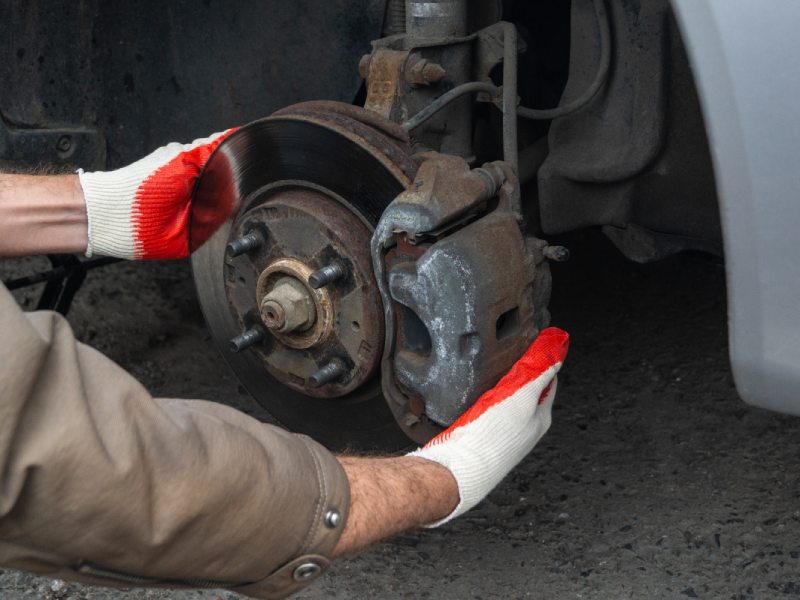Lemon Law in New York: A Complete Guide to Consumer Rights
When you finally get behind the wheel of your new car, you expect it to run smoothly and bring a sense of joy. But what happens if that shiny vehicle turns out to be more trouble than it’s worth? This is where New York’s Lemon Law steps in, giving consumers the power to stand up for their rights and seek justice against manufacturers who sell faulty vehicles. Whether you’re facing endless repairs or just want your hard-earned money back, understanding this law can save you from feeling frustrated and stuck. Let’s dive into what the Lemon Law entails and how it can help protect you as a savvy car buyer.
The lemon law in New York provides consumers with legal remedies for purchasing defective vehicles that fail to meet quality and performance standards. Under this law, if a new car has persistent issues that cannot be repaired after a reasonable number of attempts, the buyer may be entitled to a refund or replacement vehicle from the manufacturer.
Overview of New York’s Lemon Law
New York’s Lemon Law serves as a vital shield for consumers who find themselves in dire situations with vehicles that just won’t cooperate. Imagine purchasing what you believe to be your dream car, only to encounter persistent mechanical problems that seem never-ending. This law was created precisely to address such scenarios and extends protections not only to new cars but also to used vehicles under specific conditions.
Essentially, the law guarantees that if a vehicle proves defective—be it new or pre-owned—you have rights and remedies available to you. The aim is straightforward yet powerful: protect consumers from the burden of recurring flaws that could compromise not just the function, but also the safety and value of their transportation.
The law has evolved since its inception in 1983, firmly placing accountability on manufacturers, mandating them to either fix the issues or refund the consumer for their troubles.

Key Aspects of the Lemon Law:
- Eligibility: The law stipulates that for new vehicles, any defects must occur within the first 18,000 miles or two years of ownership. Meanwhile, used vehicles see this coverage last for up to two years or 18,000 miles from when it was delivered. This gives consumers a time frame in which they can feel secure about their purchase.
- Definition of a Lemon: It’s important to understand what qualifies as a “lemon.” A comprehensive definition states that a vehicle is deemed a lemon if it possesses one or more significant defects that remain unresolved even after a reasonable number of attempts to repair—typically around four tries. This gives you leverage when dealing with manufacturers.
- Coverage Scope: It’s valuable to remember that while the Lemon Law protects personal vehicles, it does not extend its reach to motorcycles or vehicles exceeding 10,000 pounds. This delineation clarifies exactly what falls under the law’s protection.
Understanding these elements prepares you for any challenges you might face as a consumer in situations involving defective vehicles. Next, we explore further protections that are designed specifically for consumer well-being.
Consumer Protections and Rights
The Lemon Law Lawyer New York grants consumers significant rights to ensure they are not left with a defective vehicle, creating an important safety net for car buyers. Imagine purchasing what you believe is your dream car only to find out it has persistent problems. This law ensures that you aren’t stuck with a faulty vehicle that costs you both time and money.
Under the Lemon Law, consumers do not just have rights; they have powerful tools at their disposal to fight back against manufacturers who may try to sidestep their obligations.

Right to Refund or Replacement
One of the most compelling aspects of New York’s Lemon Law is the right to choose between a refund or a replacement vehicle if a vehicle is deemed a lemon. If your car is diagnosed with substantial defects that impair its use, safety, or value after several unsuccessful repair attempts, you can ask for your money back or opt for a new vehicle altogether. This choice empowers consumers and allows them to reclaim their investment rather than enduring continuous issues.
Now, even if you love the car itself, the prospect of enduring expensive repairs can turn your happy purchase into a daunting experience.
No Cost Repairs
Another critical right under this law is that consumers enjoy no cost repairs for all repairs related to the defect within the warranty period. Any costs associated with fixing these issues should be covered by the manufacturer. You won’t face unexpected repair bills while dealing with the repercussions of purchasing a lemon—a powerful reassurance for any consumer.
It’s also worth noting that manufacturers may not charge additional fees for diagnostic tests or other service-related inquiries when addressing warranty claims.
Extended Protection
For those unfortunate situations where vehicles require repeated repairs, extended protection comes into play. The warranty period is stretched to include the duration when your vehicle was in the shop being repaired. This ensures that consumers have peace of mind knowing that the warranty isn’t just a ticking clock but a protective shield that holds value even during extended repair periods.

With these robust consumer protections in place, understanding the specifics about qualifying vehicles and issues will enhance your navigation of rights as a consumer in New York.
Vehicles and Issues Covered
Not every vehicle or defect qualifies for relief under the Lemon Law. It’s crucial to understand these distinctions because this knowledge empowers you to take rightful action if you find yourself in a problematic situation with your car. The law primarily protects consumers who invest in their vehicles, ensuring they don’t get stuck with a lemon—an automobile that frequently fails to meet quality and performance standards.
Covered Vehicles
The Lemon Law applies to specific types of vehicles. In New York, both new and used vehicles are encompassed by these protections, provided they were purchased, leased, or transferred within the state. This includes cars, trucks, and SUVs that serve primarily personal purposes. Understanding that your vehicle is covered opens doors for you to seek remedy should you experience ongoing mechanical failures. Getting the most out of your investment means knowing that if you face consistent issues, the law will have your back.
Excluded Vehicles
However, it’s equally important to know which vehicles are excluded from these protections. Vehicles such as motorcycles and off-road vehicles are typically not covered, nor are trucks that exceed 10,000 pounds in weight. These exclusions exist due to differing standards of operation and usage; thus, they come with separate expectations regarding maintenance and performance. If you’re driving one of these excluded vehicles, being proactive about maintenance can save you future headaches.
Understanding what specific issues are covered under the Lemon Law can dramatically affect your approach. Covered defects range from serious concerns like engine failures and faulty brakes to premature transmission failures and severe electrical problems. Essentially, if something crucial goes wrong and renders your vehicle unusable or unsafe shortly after purchase, it may be subject to claims under the law.

Issues Not Covered
On the flip side, minor issues usually don’t qualify for resolution through the Lemon Law process. Cosmetic flaws or trivial problems—like intermittent rattles or small leaks—are generally considered normal wear and tear rather than substantial defects that warrant legal intervention. Recognizing this nuance helps prevent any misconceptions when pursuing a claim.
With this foundational understanding of the qualifying criteria for vehicles and defects in mind, you’re now ready to explore how to take formal action should you ever need to address these issues effectively.
Filing a Lemon Law Claim
The first step in filing a Lemon Law claim is to notify the manufacturer about the defect in your vehicle. This initial communication should be clear and concise, outlining the issue you’ve encountered as well as any repair attempts already made. It’s best to put this in writing—consider sending an email or a certified letter to establish a formal record and create evidence of your diligent efforts. Be sure to reference the specific problems you’ve experienced while providing your vehicle’s identification details.
After you’ve notified the manufacturer, the next critical step involves giving them a fair opportunity to resolve the issues.
In most cases, allow the manufacturer or authorized dealer a reasonable number of attempts—typically four—to fix the defect. If you take your car in for repairs multiple times for the same persistent issue, they must acknowledge and try to address it adequately before you can proceed with your claim. The law recognizes that repair defects can sometimes require several visits before resolution is achieved. Always remember to maintain a calendar of these repair attempts to strengthen your case.

As you progress through these repairs, it’s crucial to keep meticulous records.
Documentation is key when filing a Lemon Law claim. Once you’ve reached the point where the defect persists despite multiple repair attempts, it’s time to submit your claim officially. You will need to fill out forms provided by the New York Attorney General’s Office detailing your situation, which requires assembling all relevant documentation related to the repairs done on your vehicle. This includes invoices from service centers, correspondence with the manufacturer, and any notes about conversations with dealership staff regarding attempted fixes. Collectively, this documentation serves as your evidence, helping affirm that you have not only notified but also tried to work within reasonable limits set by the law.
Always double-check that you’ve included all required documentation, as improper submission could delay the claims process.
Submitting everything properly is essential for ensuring your Lemon Law claim is taken seriously and processed without unnecessary delays. If at any point you’re unsure about what constitutes proper documentation or have questions regarding the process, consulting with an attorney familiar with consumer rights and Lemon Laws can provide guidance and enhance your understanding of what’s needed for a successful claim.
Understanding these intricacies sets a solid foundation for addressing potential vehicle issues effectively moving forward.
Documenting Vehicle Defects
Proper documentation can indeed make or break your Lemon Law claim. Each piece of information you gather serves as a stepping stone supporting your assertion of the vehicle’s defects and the inadequacies of repairs attempted. It’s not enough to simply remember the details; keeping meticulous records is essential. Imagine being able to reference a specific date during an argument, backed by tangible evidence. That’s how powerful good documentation can be.

Essential Documents
- Repair Orders: Each time your car goes into the shop for repairs, ensure you obtain a detailed repair order. This should clearly outline the complaint raised, the work performed, parts replaced (if any), and the dates of service. Think of this order as a diary entry chronicling your vehicle’s journey; it tells a story that backs up your claims.
- Communication Records: Preserve all written communications with both the dealer and manufacturer. This includes emails, letters, and even faxes—documents that capture promises made, timelines discussed, and responses given. These records function as timestamps in your narrative, providing context to your experiences and making it clear that you’ve been proactive in addressing issues.
- Invoices and Receipts: Scrutinize every invoice or receipt related to repairs or service visits. You should also keep receipts for any temporary transport incurred while your car was being serviced or if towing was necessary due to unrepaired defects. Imagine needing to show how much you’ve spent due to those inconveniences; these bills can serve as concrete proof of hardship incurred.
Every document you compile plays a pivotal role in your pursuit of compensation and fairness.
As you organize these important documents, remember that each set of papers tells part of the larger narrative—the saga of your journey with this lemon vehicle. This is where your diligence pays off, should disputes arise about warranty obligations or the dealership’s attempts to rectify problems. Take pride in constructing this foundational case.
By developing a thorough documentation process, you set yourself up not only for a strong case but also for understanding what restitution may be available to address the challenges faced with your vehicle. Let’s explore how compensation might take shape in such situations.
Available Compensation
Under New York’s Lemon Law, the intention is clear: to ensure that consumers are not left out of pocket or burdened by defective vehicles. One of the key provisions is the choice you have between obtaining a refund or receiving a replacement vehicle. Each option has its intricacies, which we will explore further.

Refund Components:
When it comes to refunds, it’s essential to understand each component that makes up the total amount you’ll receive.
- Full Purchase Price: This includes not just the price you paid for the car but all associated costs such as taxes, registration fees, and even any applicable finance charges.
- Down Payments: Any down payment you’ve made will also be refunded in full, which can be particularly relieving if you had to make a substantial upfront contribution.
- Deduction for Use: However, it’s crucial to note that there is typically a deduction for use based on mileage prior to when you first noticed the defect. This deduction ensures fairness, taking into account the time you’ve spent using the vehicle before it became defective.
Understanding these refund elements helps clarify what to expect if you decide to go this route. Likewise, if you’re considering arbitration or replacement options, being well-informed about your circumstances will strengthen your position as we explore those aspects further.
Knowing your potential for compensation empowers you as a consumer. By grasping the nuances of refunds and recognizing their components, you are better equipped to navigate through possible challenges with defective vehicles under New York’s Lemon Law.
With this foundational understanding, we can now shift focus to the next steps involved in addressing disputes effectively.
Arbitration Process and Legal Help
Arbitration can genuinely simplify the complex landscape of consumer rights, especially when dealing with lemon law claims. By opting for this method, many find that they can resolve their issues more efficiently than through the typical court system. Instead of becoming engulfed in legal jargon and formal procedures, arbitration presents a straightforward pathway to ensure you receive justice without undue stress.

Benefits of Arbitration:
- Quicker Resolutions: Arbitration kickstarts the process swiftly and typically results in faster resolutions compared to lengthy court proceedings. This means you won’t wait months or even years to hear a verdict.
- Less Formal: The setting is far less intimidating than a courtroom, which can often feel overwhelming for consumers simply seeking fair treatment.
Navigating the arbitration process involves clear and precise steps to ensure everything moves smoothly.
Step 1: File Request
To initiate your claim, you’ll need to submit a Request for Arbitration through the New York Attorney General’s website. Alongside this submission, there’s a mandatory filing fee of $250. Interestingly, if your case is successful, this fee may be refunded. Ensuring your request is filled out accurately is crucial as it sets the tone for your entire case.
Step 2: Gather Documentation
Once you’ve filed your request, it’s time to tackle another vital aspect—gathering documentation. Collecting all relevant repair orders, communication records with the dealer or manufacturer, and any other pertinent evidence creates a strong foundation for your case. This collection isn’t just busywork; it’s what will substantiate your claims during the hearing and provide clarity about the issues at hand.
With your documents in order, you’re ready for the next significant step: attending the arbitration hearing.
Step 3: Attend Arbitration Hearing
When you arrive for the scheduled arbitration hearing, you’ll present your case along with your compiled evidence to an arbitrator who will ultimately make a binding decision. Here, you’ll have the opportunity to articulate your concerns and demonstrate how your situation qualifies under New York’s lemon law provisions. It’s essential to communicate clearly and stay focused on the facts surrounding your claim.
As we continue exploring this topic, let’s address some common inquiries individuals might have regarding arbitration.

Common Questions and Answers
Addressing common queries helps demystify the Lemon Law for consumers, ensuring they have a better understanding of their rights and options. It’s essential to understand this legal framework, especially when it comes to protecting your investment in a vehicle. Here are answers to some frequently asked questions:
- How long do I have to file a claim? Generally, consumers have up to four years from the date of delivery to file a claim under the Lemon Law. This timeframe is crucial because missing it could mean losing your chance for any potential repair or compensation. Always keep track of key dates, like when the vehicle was purchased.
- Can I file a claim if I bought a used car? Yes, you can file a Lemon Law claim if you purchased a used car, provided it meets specific criteria. The defect must usually occur within a defined coverage period, so ensure you understand both the warranty terms and state-specific stipulations regarding used vehicles. Not all used cars will qualify, but if yours does, taking action can save you significant frustration.
- Do I need a lawyer? While having a lawyer isn’t obligatory, obtaining legal advice can be incredibly beneficial. An experienced attorney can provide clarity on the nuances of your case and may strengthen your position if arbitration does not lead to a satisfactory resolution. Legal expertise is invaluable when dealing with large manufacturers who often have extensive resources at their disposal.
- What if the manufacturer refuses to comply? If the manufacturer chooses not to follow the arbitrator’s decision, you may need to escalate matters by proceeding to court to enforce that decision. This situation can be frustrating, but knowing that you have legal recourse is essential. It’s advisable to maintain clear records of all communications and decisions throughout the process; documentation will support your case if court action becomes necessary.
With these answers, you should feel more equipped to navigate your rights as a consumer under New York’s Lemon Law framework. Understanding these common scenarios builds confidence as you take steps toward safeguarding your purchase.
In protecting your rights under New York’s Lemon Law, awareness and preparation are key. By arming yourself with knowledge, you can effectively advocate for your interests should issues arise with your vehicle.
What qualifies a vehicle as a “lemon” under New York law?
Under New York law, a vehicle is classified as a “lemon” if it has a substantial defect that affects its use, value, or safety, and the issue persists after a reasonable number of repair attempts—typically three for the same problem or 30 days out of service within the first 18 months or 18,000 miles. This consumer protection ensures that buyers are not stuck with defective vehicles and encourages manufacturers to address faults proactively.
Are there any additional consumer protections offered beyond the lemon law in New York?
Yes, in addition to the Lemon Law, New York offers various consumer protections through the General Business Law and the New York State Attorney General’s office. These include protections against false advertising, deceptive business practices, and warranties. For instance, under the Magnuson-Moss Warranty Act, consumers can seek legal remedies if a seller fails to honor warranty terms. According to the New York Attorney General’s 2022 report, consumers filed over 10,000 complaints related to unfair business practices, illustrating the importance of these protections in safeguarding consumer rights beyond just lemon law provisions.
What documentation is required to pursue a lemon law case in New York?
To pursue a lemon law case in New York, you need to provide key documentation such as the original purchase agreement, proof of warranty, repair records detailing the issues experienced, and any correspondence with the manufacturer or dealer. These documents establish not only your purchase but also the ongoing problems with the vehicle and your attempts to resolve them. Notably, New York’s Lemon Law offers strong protections; according to data, consumers who effectively document their cases have a higher success rate in obtaining refunds or replacements.

What remedies are available to consumers if their vehicle is considered a lemon?
If a vehicle is considered a lemon in New York, consumers are entitled to several remedies under the Lemon Law, which primarily include a replacement vehicle or a full refund of the vehicle’s purchase price minus any usage fees. Statistics show that approximately 1 in 100 vehicles sold may qualify as lemons, highlighting the importance of consumer awareness and rights in these cases. Additionally, New York law mandates that manufacturers cover the costs associated with these remedies, reinforcing consumer protection and accountability within the automotive industry.
How long do I have to file a lemon law claim in New York?
In New York, you generally have 4 years from the date of sale to file a lemon law claim for a defective vehicle. This time frame is rooted in New York’s Uniform Commercial Code, which allows consumers to seek remedies for breaches of warranty. Prompt action is important as delaying could jeopardize your ability to assert your rights effectively. Always consider seeking advice from a legal expert to navigate specific circumstances regarding your claim.

